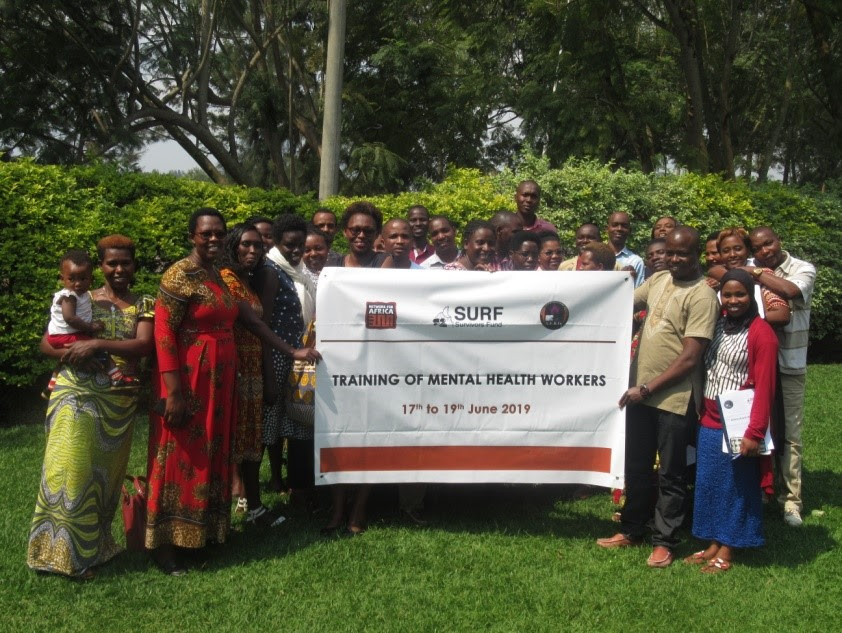
Every month, we publish an electronic newsletter with some key updates on our work. You can subscribe to it here, but to give you a flavour of what it contains we extract some highlights from our July Newsletter as below.
News from Survivors Fund (SURF)
As we come to the end of the official 100 days of the commemoration of the 25th anniversary of the Genocide against the Tutsi in Rwanda, for many survivors the battle with the consequences of their experience before, during and after the genocide continue. For most survivors the effects of the genocide will be a daily reality with which they will forever continue to live. Survivors such as women victims of genocide rape have to battle with HIV infection to their last day. The issue of trauma also seems to be escalating, particularly amongst older survivors who have little or no family as a result of the genocide. We cannot eradicate these issues, but with your support we are making a difference – such as in the case of Carine – who was a focus of a BBC News online profile which featured our work this month.

Mental Health Workers Training
According to a recent study by the Ministry of Health of Rwanda, 35% of genocide survivors experience mental health disorders.
This month Survivors Fund (SURF) conducted three days of training for 30 mental health workers from 30 Health Centers in Rwamagana and Gatsibo Districts in the Eastern Province, and and Nyaruguru in the Southern Province of Rwanda. These districts are among those districts with the highest numbers of survivors in Rwanda. The mental health workers were equipped with techniques on how to identify people with mental health disorders and how to help them.
Survivors Fund (SURF) works with AERG (National Student’s Association of Genocide Survivors) on a project funded by Network for Africa to provide counseling to groups of youth survivors school drop outs in these districts and we are working with district health centers on cases that need long term treatment. The need to break the stigma associated with seeking help and coming up with preventive measures is great, and SURF remains committed to help address it.
